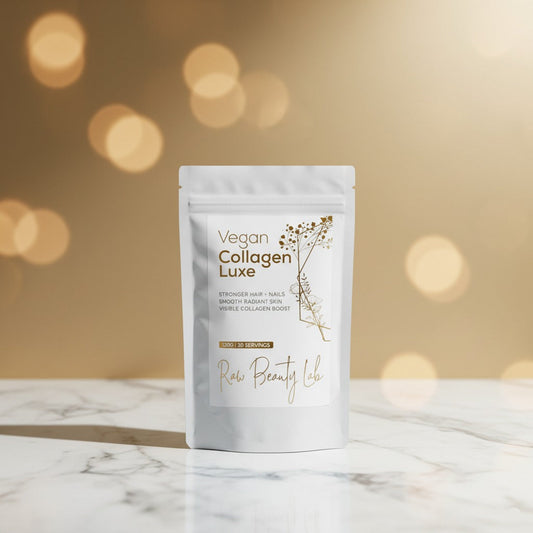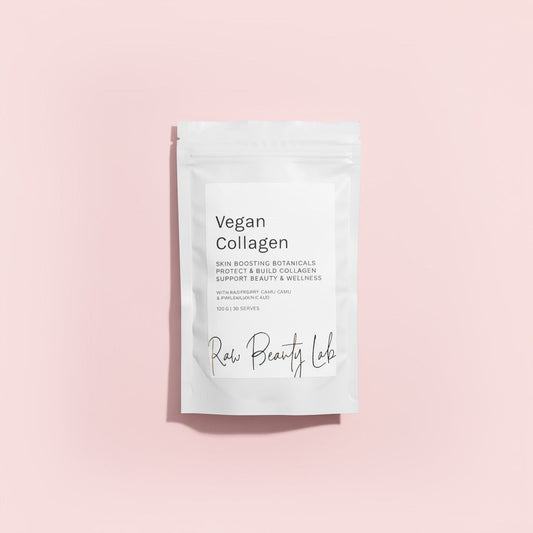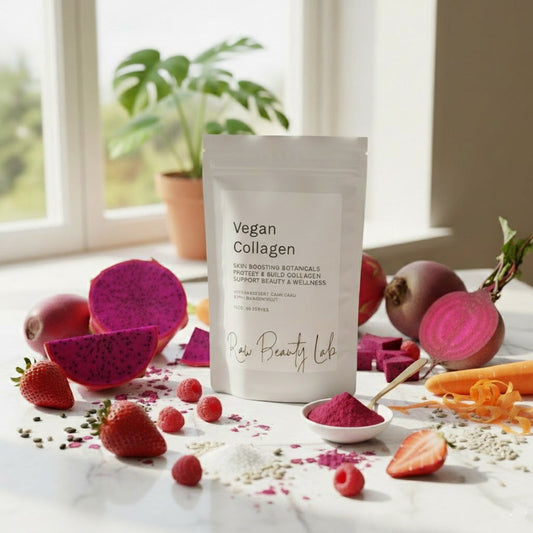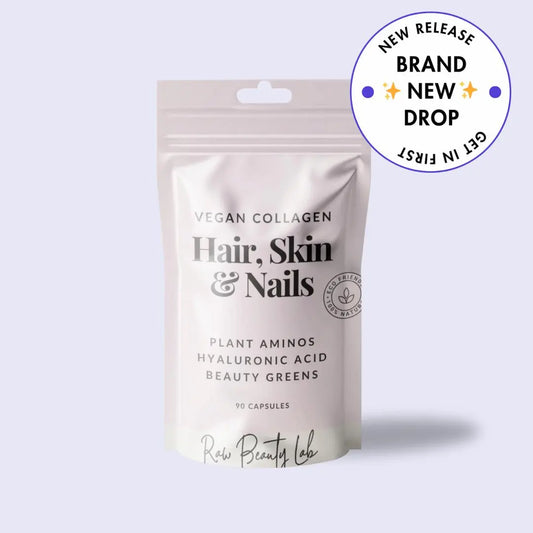Table of contents
Hello, beautiful reader! Welcome to the skin-venturing world of beauty science. When it comes to glowing, balanced, and healthy skin, the beauty cabinet can often resemble a chemistry lab. Today, we're diving deep into two skincare superheroes: Vitamin C and Hyaluronic Acid. Both pack a punch in the fight for radiant skin, but which one should you choose? Spoiler alert: you might want both!
Vitamin C Skin Benefits
Vitamin C isn't just a power player for your immune system; it's also a skincare superstar. This vitamin is an antioxidant that tackles the dullness and sagging skin alert! Clinical studies show that it can boost collagen production. ¹ Imagine a naturally fuller-looking complexion, as collagen is like the scaffolding of your skin.
Oh, and goodbye dark spots! Vitamin C is known for its ability to fade pigmentation and brighten the skin. ² It's basically your skin's best pal when battling that blotchy summer souvenir we call "sun damage."
Hyaluronic Acid: Moisture Magnet
Think of Hyaluronic Acid as a big, comforting glass of water for your skin. It's a natural humectant stashed in your body's tissues, but as we age, it diminishes faster than a freshly served ice cream on a summer day. Hyaluronic Acid draws moisture from the air into your skin, making it look plump and dewy. ³
Now, if you're considering Hyaluronic Acid vs. Glycerin, both are excellent hydrators. However, Hyaluronic Acid has the edge because it can hold up to 1,000 times its weight in water. Talk about a mega-moisture magnet!
Combining the Two
The truth is, Vitamin C and Hyaluronic Acid work better together. While Vitamin C repairs and defends, Hyaluronic Acid ensures that your skin remains hydrated and the active ingredients are absorbed efficiently.
Natural Retinol Alternatives
If you're exploring ingredients like natural retinol alternatives, you're in for a treat. Adaptogens for skin, such as ginseng and reishi mushroom, calm and rejuvenate. They're nature's retinol, minus the redness. Part of the appeal lies in their gentle, adaptogenic properties that help skin adapt to stress.
Peptides for Aging Skin
Peptides are small but mighty. These chains of amino acids are essential for healthy skin as they help build proteins like collagen and elastin. For aging skin, incorporating peptides means more elasticity and a tighter feel. Over time, they'll work to reduce fine lines, making skin look more youthful. Who doesn't want that?
Vegan Skincare Actives
We're thrilled to live in an age where vegan skincare actives are all the rage. Want to contribute to a kinder skincare routine? Look no further than Vegan Collagen - Vollagen® from Raw Beauty Lab. Unlike animal-derived collagen, Vollagen® is plant-based but offers the same skin-saving benefits: think plump, glowing skin.
The Final Verdict
Choosing between Vitamin C and Hyaluronic Acid depends on your skin's needs. Is it begging for hydration or shouting for repair and glow? Both have unique, scientifically backed benefits, and using them together can give your skin everything it needs for optimal health.
Don't forget to tidy up your skincare routine with some targeted additions like peptides for aging skin or adaptogens that offer a natural retinol alternative, sealing the glow deal.
Explore more about skin-loving ingredients on Raw Beauty Lab. Here's to happy, healthy, and glowing skin!








